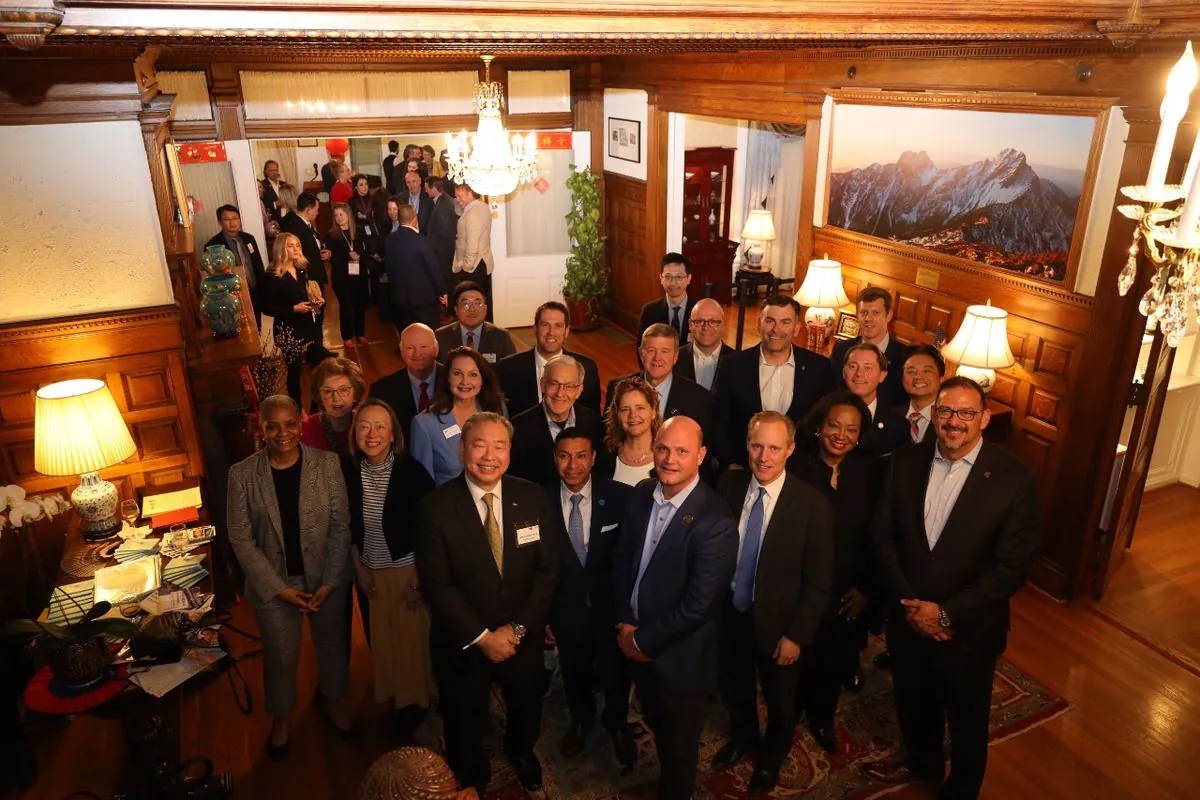Taiwan's Diplomatic Warrior: Navigating US Relations and Global Recognition
Taiwan's representative to the US discusses diplomatic challenges, semiconductor industry, and defense strategies amidst growing tensions with China. The interview highlights Taiwan's quest for international recognition.

In the heart of Washington D.C.'s Cleveland Park neighborhood lies the Twin Oaks estate, a property slightly larger than the White House compound. This 18-acre estate serves as a de facto embassy for Taiwan, a nation navigating complex diplomatic waters.
Alexander Tah-ray Yui, Taiwan's representative to the United States since January 2024, recently shared insights into Taiwan's diplomatic strategies and challenges. Yui, describing himself as a "dragon warrior," emphasizes the importance of diplomatic efforts in Taiwan's defense.
Taiwan's diplomatic landscape has evolved significantly since 1979 when the US and UN recognized the People's Republic of China. Despite having only about a dozen official diplomatic allies, Taiwan has strengthened its unofficial relationships globally.
The US-Taiwan relationship remains robust, with bipartisan support in Washington. Under President Biden's administration, approximately 15 weapons sales to Taiwan have been approved. Yui expresses optimism about continued US support, regardless of the outcome of the upcoming presidential election.

Taiwan's semiconductor industry plays a crucial role in its global partnerships. The island produces 92% of the world's most advanced chips, primarily through Taiwan Semiconductor Manufacturing Company (TSMC). Yui views TSMC's $65 billion investment in Arizona as a strategic move, strengthening Taiwan's relevance in global supply chains.
"Because once the production is in other countries, we become part of a supply chain with those countries... So actually we become more relevant because we're partners."
Regarding defense, Yui downplays the 2027 deadline for China's military readiness, viewing it as symbolic due to the 100th anniversary of China's People's Liberation Army. However, he acknowledges the rapid increase in China's military capabilities.
Taiwan's democratic values form the core of its diplomatic efforts. Yui emphasizes the contrast between Taiwan's democracy and China's autocracy, positioning Taiwan as an alternative model for the Chinese people.
As Taiwan continues its quest for international recognition, Yui remains committed to showcasing Taiwan's value as a sovereign, independent nation of 23 million people. Despite challenges, he believes that most countries recognize Taiwan's status as a thriving democracy, even without formal diplomatic ties.


































